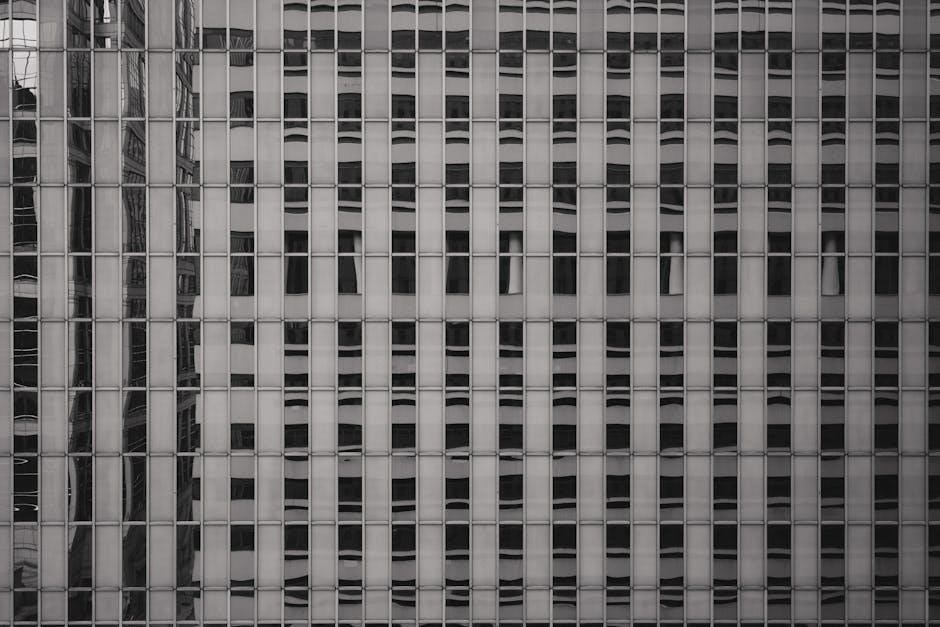
Static caravans are durable, portable structures designed for temporary accommodation, often featuring glass for natural light, insulation, and aesthetic appeal․ Glass enhances energy efficiency, safety, and structural integrity․
1․1․ Overview of Static Caravans and Their Construction
Static caravans are durable, portable structures designed for temporary accommodation, built with materials like steel, wood, and insulated panels․ They feature modern interiors, appliances, and amenities, constructed to withstand various weather conditions while providing comfort and convenience for occupants․
1․2․ The Role of Glass in Static Caravans
Glass plays a crucial role in static caravans by providing natural light, insulation, and aesthetic appeal․ It enhances energy efficiency, reduces heat loss, and offers panoramic views, improving comfort and overall living experience․ Durable and weather-resistant, glass is essential for maintaining structural integrity and safety in these portable structures․
Types of Glass Used in Static Caravans
Static caravans utilize laminated, tempered, and double-glazed glass․ Each type enhances safety, durability, and energy efficiency, ensuring optimal performance in various conditions․
2․1․ Laminated Glass for Safety and Security

Laminated glass is a multi-layered pane designed to resist shattering․ It holds together upon impact, providing enhanced security and minimizing injury risks․ Ideal for caravan windows and doors, it ensures safety while maintaining clarity and structural integrity, making it a crucial feature for modern static caravan designs and applications․
2․2․ Tempered Glass for Durability
Tempered glass is heat-treated for enhanced strength, making it highly durable and resistant to heat and impact․ Ideal for caravan windows, it withstands harsh weather conditions and ensures longevity․ Its robust structure minimizes the risk of damage, providing reliability and safety for static caravan owners while maintaining clarity and functionality over time․
2․3․ Double-Glazed Glass for Thermal Efficiency
Double-glazed glass features two panes with a gap, reducing heat transfer and noise․ It enhances thermal efficiency in static caravans, keeping interiors warm in winter and cool in summer․ This design lowers energy costs, reduces condensation, and improves comfort, making it a practical choice for caravan owners seeking year-round insulation and energy savings․
Maintenance and Care of Glass in Static Caravans
Regular cleaning, scratch prevention, and inspections are vital for preserving caravan glass․ Proper care ensures clarity, safety, and energy efficiency, protecting your investment and enhancing comfort․
3․1․ Cleaning Techniques for Caravan Glass
Regular cleaning is essential for maintaining caravan glass clarity․ Use mild soap, water, and a microfiber cloth to avoid streaks․ Circular motions help prevent scratches․ Avoid abrasive materials or high-pressure washes, which can damage glass surfaces․ Dry thoroughly to prevent water spots, ensuring optimal visibility and durability for years to come․

3․2․ Preventing Scratches and Damage
Prevent scratches by using protective films or coatings on glass surfaces․ Store the caravan in shaded areas to avoid fading․ Clean with soft cloths and mild detergents to avoid abrasive damage․ Regular inspections help identify vulnerabilities early, ensuring longevity and maintaining clarity for optimal performance and aesthetic appeal in your static caravan․
Regular inspections ensure glass remains free from damage․ Check for cracks, chips, or seal failures that could compromise structural integrity․ Inspect frames for signs of wear or rust․ Professional checks during maintenance can prevent minor issues from escalating․ Addressing problems early preserves safety, energy efficiency, and the overall durability of your caravan’s glass features․
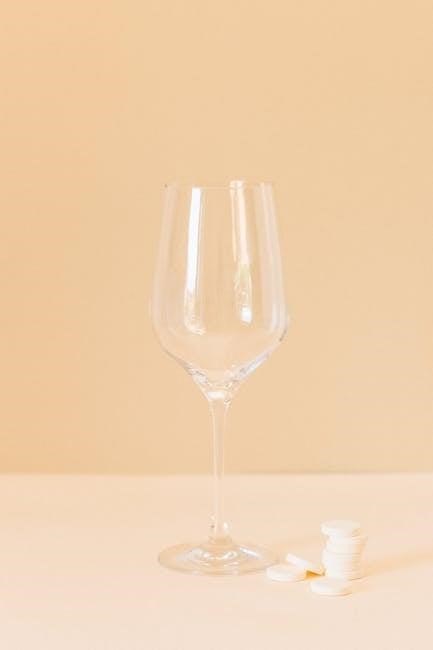
Common Issues with Glass in Static Caravans
3․3․ Regular Inspections for Glass Integrity
Regular inspections are crucial to identify potential issues early․ Check for cracks, chips, or seal failures that could lead to leaks or structural weaknesses․ Inspect glass edges and frames for signs of wear or damage․ Addressing minor issues promptly prevents them from becoming major problems, ensuring long-term safety and functionality․
4․1․ Condensation and Mould Prevention
Condensation and mould are common issues in static caravans due to moisture buildup․ Proper ventilation and using fans can reduce humidity․ Regularly inspect for water leaks and ensure seals are tight․ Addressing condensation early prevents mould growth, protecting both the glass and overall caravan structure from damage․
4․2․ Handling Cracks and Breakages
Cracks and breakages in static caravan glass require immediate attention to prevent further damage․ Assess the severity and seal minor cracks with DIY repair kits․ For severe cases, contact professionals to replace the glass․ Always wear protective gear when handling broken glass to avoid injuries and ensure safety․
4․3․ Dealing with Haze and Discoloration
Haze and discoloration on caravan glass can result from environmental exposure or degraded sealants․ Regular cleaning with specialized products and UV-protective coatings can help prevent these issues․ For severe cases, professional glass restoration or replacement may be necessary to restore clarity and maintain visibility․

Replacement and Repair Options
Static caravan glass can be repaired or replaced using DIY kits for minor issues or professional services for complex damage, ensuring safety and cost-efficiency․
5․1․ DIY Glass Repair Kits
DIY glass repair kits offer a cost-effective solution for minor caravan glass damage․ Typically including resin, sealants, and applicators, these kits are ideal for small cracks or chips․ Easy to use, they prevent further damage and restore clarity․ However, they are not suitable for large breaks or structural issues, which require professional attention․
5․2․ Professional Glass Replacement Services
Professional glass replacement services ensure high-quality results for static caravan windows․ Experts use specialized tools and materials, guaranteeing precise installation and reliability․ They handle complex repairs, ensuring safety and energy efficiency․ Services often include removing broken glass, fitting new panes, and ensuring proper sealing․ This option is ideal for large-scale or intricate glass damage, offering long-term durability and peace of mind․
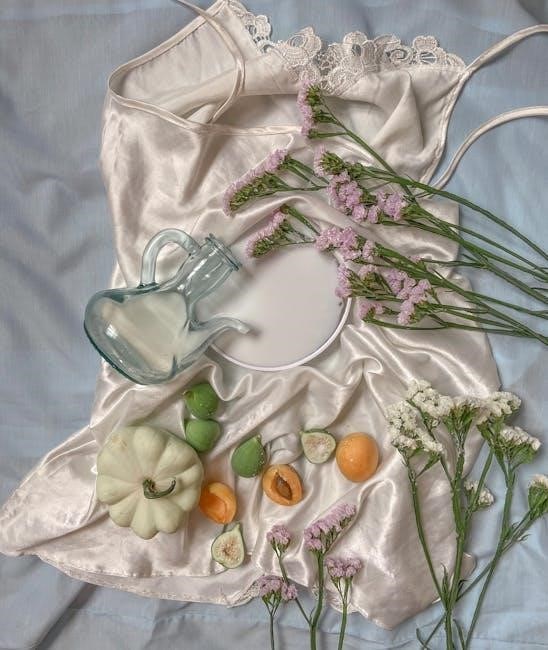
5․3․ Cost Considerations for Glass Repairs
Glass repair costs for static caravans vary based on factors like glass type, size, and location․ Laminated or tempered glass may be pricier than standard options․ Labor costs from professionals can add to the expense․ Additionally, emergency repairs or remote location services may incur higher charges, impacting the overall budget for maintenance or upgrades․
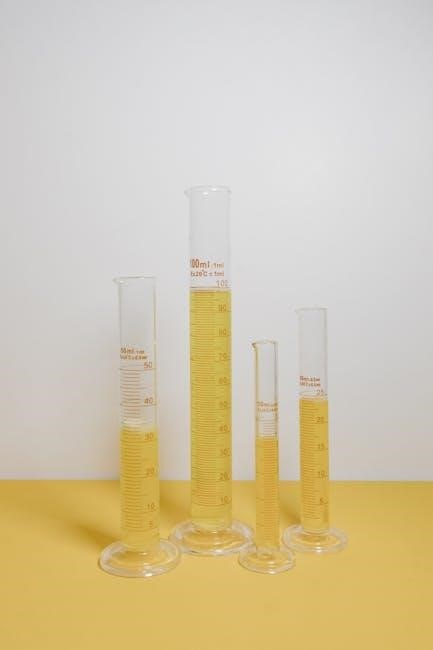
Thermal Efficiency and Energy Savings
Thermal efficiency is crucial for maintaining comfort and reducing energy consumption in static caravans․ Modern glass technologies play a significant role in minimizing heat loss and optimizing energy savings․
6․1․ How Double-Glazing Reduces Heat Loss
Double-glazing significantly reduces heat loss by trapping a layer of air or gas between two glass panes, creating an insulating barrier․ This structure minimizes heat transfer, retains warmth in winter, and prevents heat gain in summer, enhancing energy efficiency and comfort in static caravans․
6․2․ Solar-Control Glass for Temperature Regulation
Solar-control glass regulates temperature by blocking UV rays and reducing heat transfer․ Coatings or tints minimize sunlight penetration, keeping caravans cooler in summer and retaining warmth in winter․ This enhances energy efficiency, reduces the need for heating/cooling systems, and maintains a comfortable interior climate year-round, while also protecting interiors from UV-induced fading․
6․3․ Impact of Glass on Caravan Insulation
Glass significantly influences caravan insulation by controlling heat transfer and airflow․ High-quality glass, such as double-glazed or thermally efficient types, minimizes thermal conductivity, reducing heat loss in winter and heat gain in summer․ Properly sealed glass units prevent air leaks, enhancing overall insulation and maintaining a stable internal temperature, crucial for energy efficiency and comfort․
Safety and Security Features
Glass in static caravans enhances safety by reducing shatter risks and preventing unauthorized access․ Modern glass solutions, like laminated and tempered options, ensure durability and security, protecting occupants and belongings while maintaining visibility and natural light․
7․1․ Shatter-Resistant Glass for Safety
Shatter-resistant glass enhances safety by holding together upon impact, reducing injury risks․ Laminated glass layers provide strength, ensuring fragments remain intact․ This feature is crucial for static caravans, protecting occupants during accidents or break-ins while maintaining structural integrity and security․
7․2․ Anti-Burglary Glass Solutions
Anti-burglary glass solutions, such as laminated and tempered options, offer enhanced security for static caravans․ These glasses are difficult to break, deterring potential intruders․ They ensure safety and protect valuables, providing peace of mind for caravan owners while maintaining clarity and functionality․
7․3․ Emergency Exit Glass Considerations
Emergency exit glass in static caravans must meet strict safety standards, ensuring quick and safe evacuation․ Tempered glass is ideal due to its shatter-resistant properties, providing clear escape routes and minimizing injury risks․ Proper installation and regular inspections are crucial to maintain functionality and compliance with safety regulations․
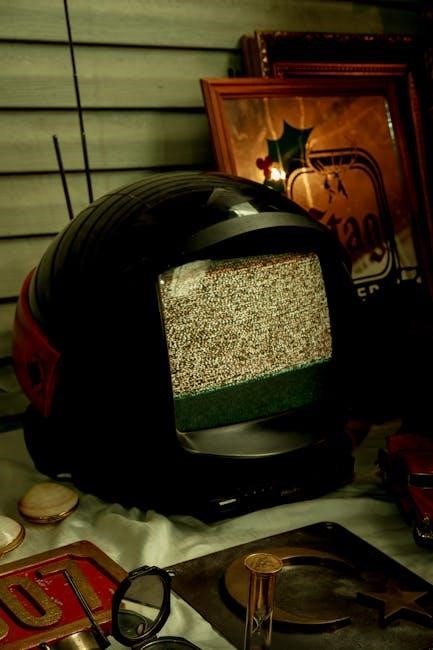
DIY vs Professional Installation
Deciding between DIY and professional glass installation involves balancing cost, time, and expertise․ DIY offers savings but requires skill, while professionals provide warranties and assured quality results․
8․1․ Pros and Cons of DIY Glass Installation
DIY glass installation saves costs but demands precision and care․ While it offers flexibility, improper techniques can lead to leaks or damage․ Proper tools and knowledge are essential for success, balancing affordability with potential risks of errors and safety hazards․
8․2․ Benefits of Hiring a Professional
Hiring a professional ensures high-quality glass installation, leveraging their expertise and experience․ They provide warranties, use specialized tools, and guarantee safety standards․ Professionals save time, minimize risks, and deliver long-lasting results, offering peace of mind and superior craftsmanship for your static caravan’s glass needs․
8․3․ Tools and Materials Needed for Glass Work
Essential tools include glass cutters, suction cups, rubber rollers, and sealants․ Materials like double-sided tape, weatherproof adhesives, and protective films are crucial․ Safety gear such as gloves and goggles is a must․ Proper equipment ensures secure and professional glass installation, minimizing risks and ensuring durability in static caravan maintenance․
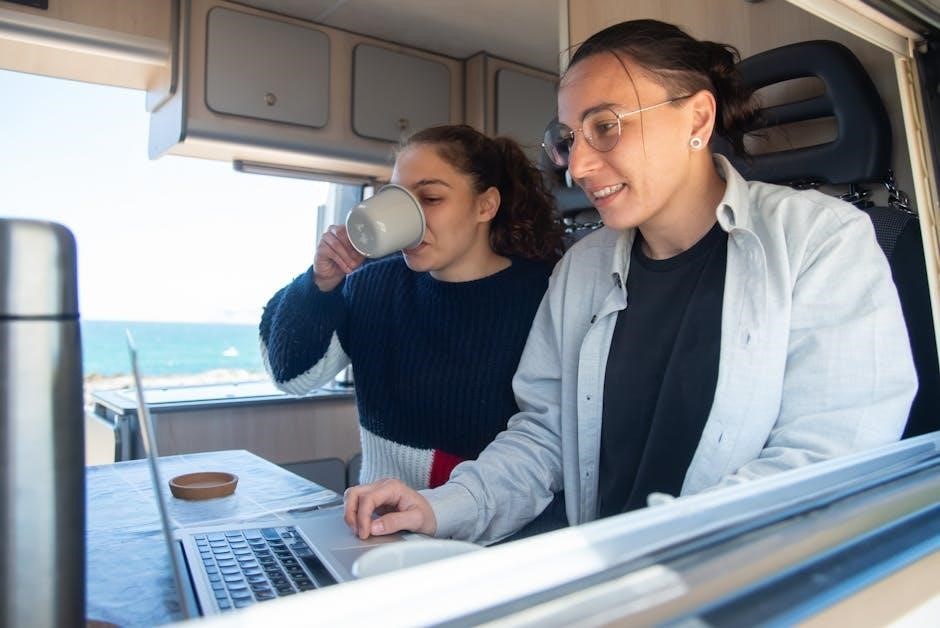
Future Trends in Caravan Glass Technology
Smart glass with dynamic tinting, self-cleaning coatings, and energy-harvesting solutions are emerging trends, enhancing comfort, efficiency, and sustainability in static caravans․
9․1․ Smart Glass for Dynamic Tinting
Smart glass uses advanced technology to dynamically tint windows, controlling light and heat entry․ This innovation enhances energy efficiency, reduces glare, and improves comfort in static caravans․
9․2․ Self-Cleaning Glass Coatings
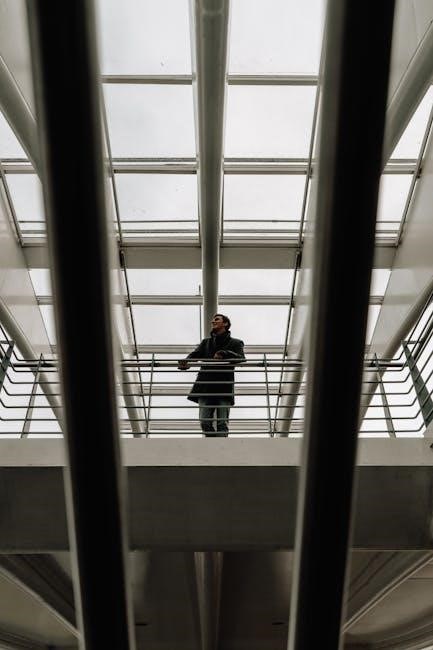
Self-cleaning glass coatings repel water and dirt, minimizing maintenance․ These coatings use hydrophobic technology, ensuring surfaces stay clean longer․ UV-stable and durable, they simplify upkeep for static caravan owners, enhancing functionality and longevity while maintaining clarity and aesthetic appeal․
9․3․ Energy-Harvesting Glass Solutions
Energy-harvesting glass integrates solar cells to generate electricity while maintaining transparency․ This innovative solution powers caravan systems, reducing reliance on external energy․ Ideal for eco-friendly static caravans, it combines functionality with sustainability, offering a modern approach to energy efficiency without compromising on light or views․
Static caravan glass enhances functionality, safety, and energy efficiency․ By understanding its role and maintaining it properly, owners can ensure long-term durability and optimal performance for years to come․
10․1․ Summary of Key Points
Static caravan glass plays a crucial role in safety, energy efficiency, and aesthetics․ Key considerations include choosing the right glass type, maintaining cleanliness, addressing condensation, and understanding repair options․ Regular inspections and proper care ensure longevity and functionality, while advancements like smart glass promise future enhancements for caravan owners․
10․2․ Best Practices for Glass Maintenance
- Use mild detergents and soft cloths to avoid scratches․
- Avoid harsh chemicals that may damage glass coatings․
- Inspect seals regularly to prevent condensation buildup․
- Address minor scratches promptly to prevent cracking․
- Ensure proper ventilation to reduce moisture-related issues․
10․3․ Future-Proofing Your Caravan Glass
Investing in high-quality, durable glass solutions, such as laminated or tempered glass, ensures long-term performance․ Regular inspections and proactive repairs prevent deterioration․ Consider advanced coatings like self-cleaning or solar-control options for enhanced functionality․ Staying informed about emerging technologies, such as smart glass, can help you upgrade efficiently, ensuring your caravan remains modern and energy-efficient for years to come․